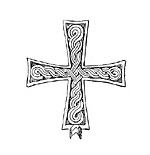
The Case Against Liturgical Antiquarianism
A COURSE DEFTLY CHARTED
Virtually every Catholic has been at Mass and heard the phrase, “In the early Church….” Often this phrase is followed by some deviance from the norms of the General Instruction of the Roman Missal. To wit: A seminarian once told me how his pastor decided to say Mass like they did in the early Church — at least his version of it. He came out of the sacristy in blue jeans and a T-shirt; what followed was an abomination. The thinking is that what the Church prescribes in the present is somehow deficient and the individual must heed the call to return to some former practice that either was abolished or fell into disuse.
This kind of liturgical antiquarianism, which seeks to reinstitute practices of old without proper Church authority, is explicitly condemned by Pope Pius XII in his 1947 encyclical Mediator Dei. Pope Pius did not prohibit alterations of the Mass; indeed, he himself modified the rites of Holy Week. Nonetheless, Pius asserted definitively that the Church has jurisdiction over her liturgical rites.
Mediator Dei begins with praise for those who study the past forms of the liturgy and sacraments of the Church, and with an immediate assertion that these rites belong to the Church: “This Apostolic See has always made careful provision for the schooling of the people committed to its charge in the correct spirit and practice of the liturgy;…it has been no less careful to insist that the sacred rites should be performed with due external dignity” (#6).
You May Also Enjoy
George Kendall says some Traditionalists become so obsessed with restoring the old Mass that it becomes a kind of idol.
The way most Baptists (and evangelicals) normally celebrate Communion -- a practice that Christ commanded us to repeat to evoke His sacrifice -- is a scandal.
We should take the Catholic adage ‘what you pray is what you believe’ as an urgent warning.

